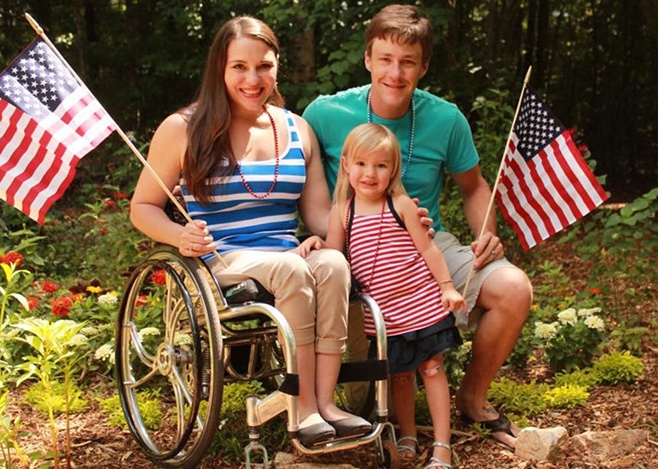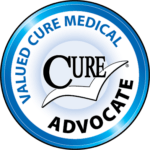 Navigating life and personal wellness can be complicated at times for anyone, but when you have a disability or medical condition – things can be even more challenging.
Navigating life and personal wellness can be complicated at times for anyone, but when you have a disability or medical condition – things can be even more challenging.
In addition to the plethora of products, procedures and information we must learn to navigate, we’re also stuck (sometimes for life) with a less-than empowering diagnoses that often works its way into our very identity.
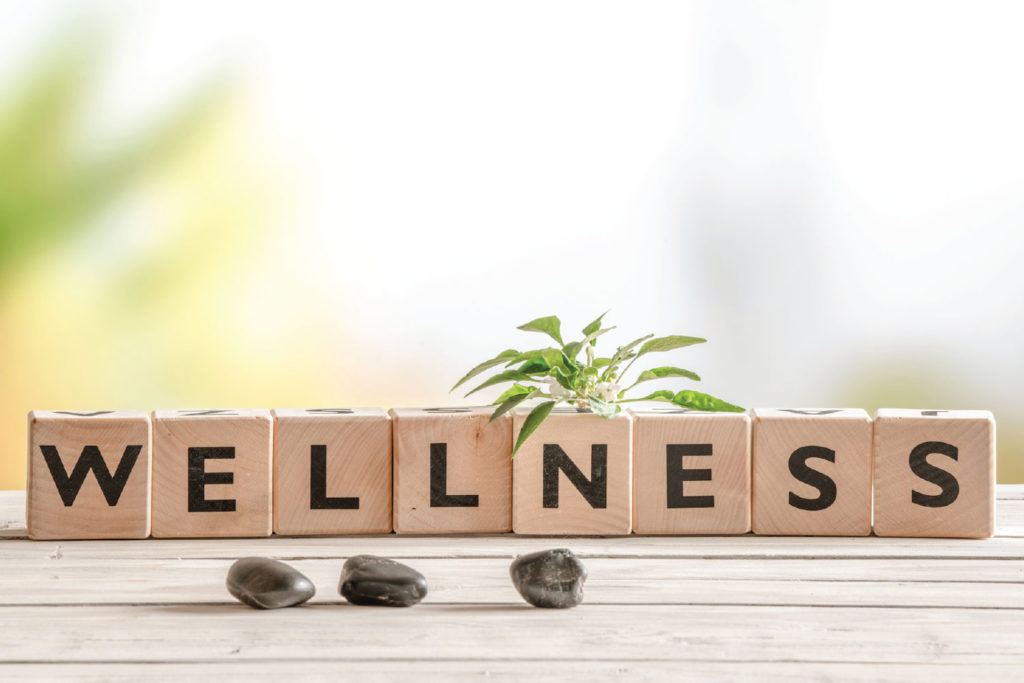
In other words, while we’re busy trying to keep our physical self healthy, we often forget about the other very crucial components of our overall wellness.
If you have a spinal cord injury or other permanent diagnosis, you are most likely in regular contact with health professionals. Western medicine – which is what we’re all used to in the United States – has come along way and offers many benefits. Our modern medicine can stop infections, close wounds, set bones and even prevent life-threatening conditions.
At the end of the day though, true wellness is about much more than that and it’s up to each of us to take charge of our own well-being.
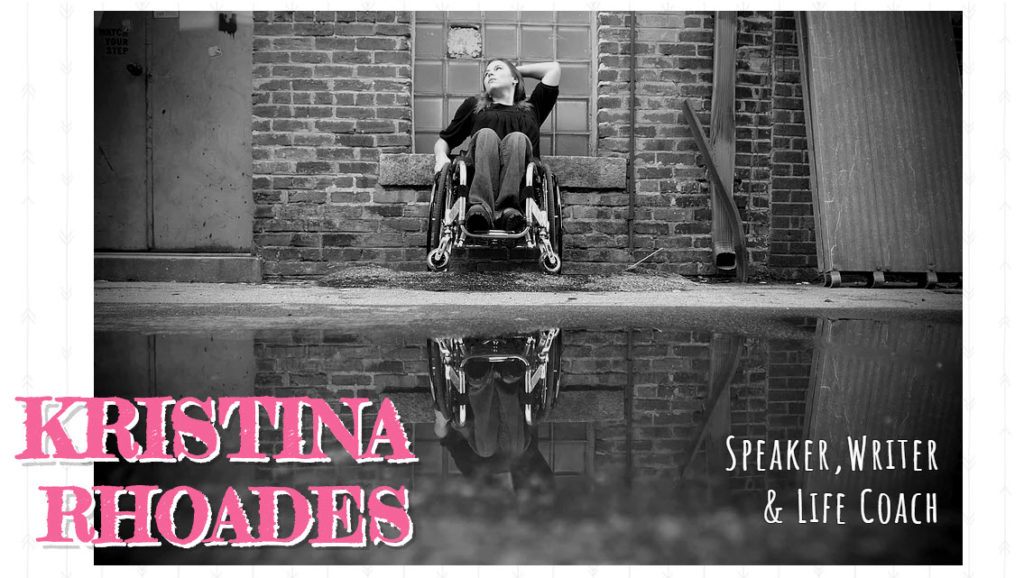
The good news? There is so much we can do to feel better – in every area of our life. It begins with a commitment to yourself.
Add in a little awareness and a few healthy habits, and we all can achieve better wellness that will result in an improved quality of life – disability or not. There is no one size fits all or single magic modality, but a combination of lifestyle choices and fresh perspectives can make all the difference.
So much of your health is in your own hands. Here are 5 tips to keep in mind on your wellness journey:
1. Cleaner Eating Habits
The word “diet” has become a word that can carry a lot of negative connotations – so we’re not going there. Diets are often very temporary and are intended to achieve a specific goal, like weight loss or lowering of blood pressure. But when someone changes their lifestyle, it tends to stick a lot longer. A good long-term goal is pretty simple – eat more real food.
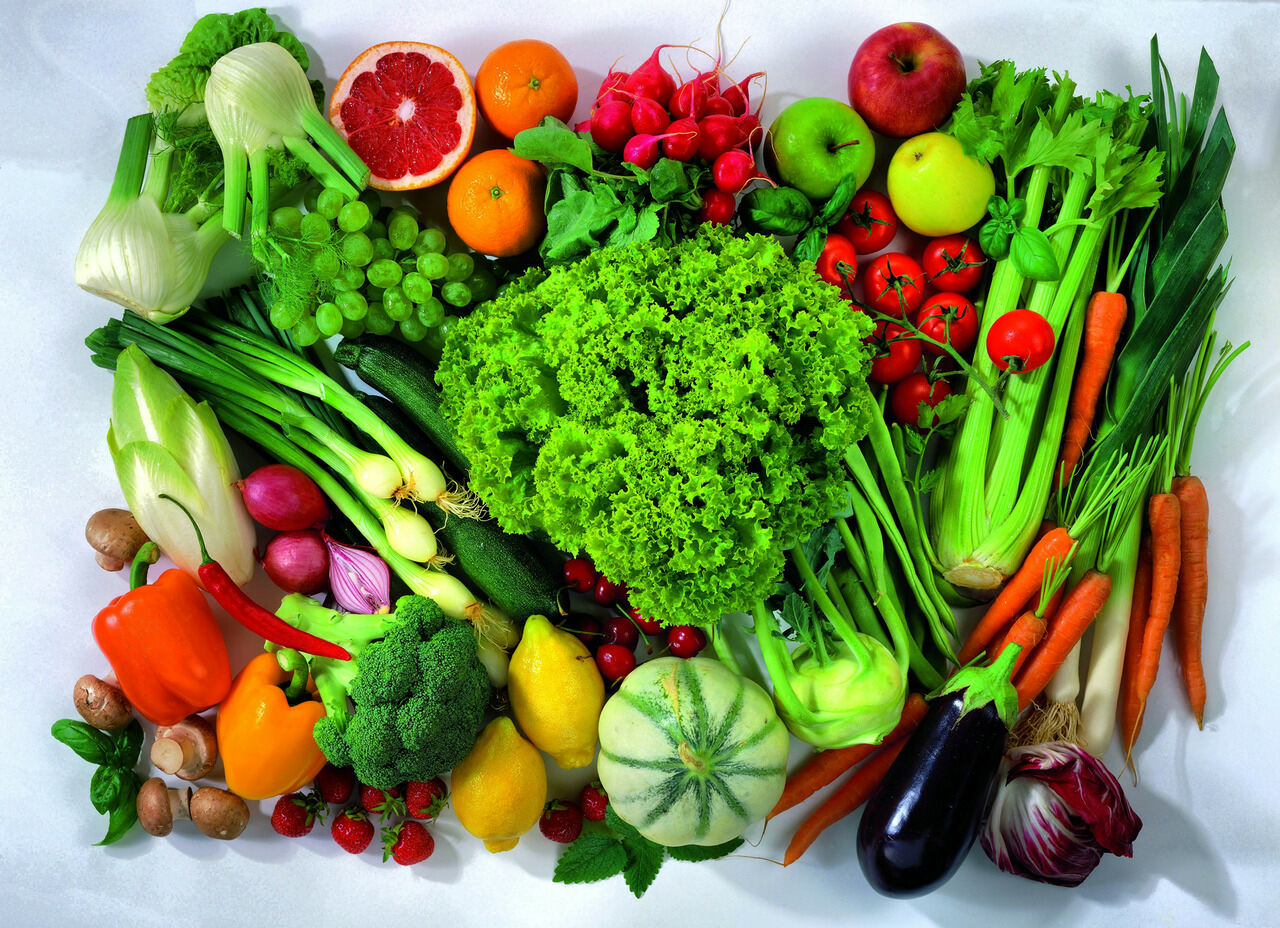 When shopping, a great tip is to stick around the edges of the grocery store. That’s where you’re going to find the fruit, veggies, meat, dairy products – the stuff that your body requires to survive and thrive. Step outside of your comfort zone, reconnect with the nourishment mother nature provides and try something new.
When shopping, a great tip is to stick around the edges of the grocery store. That’s where you’re going to find the fruit, veggies, meat, dairy products – the stuff that your body requires to survive and thrive. Step outside of your comfort zone, reconnect with the nourishment mother nature provides and try something new.
Healthy recipes don’t have to be complicated! Make smoothies or easy roasted vegetables or wonderful, colorful salads. And don’t forget to drink plenty of water!
If you’re really feeling cruddy, and maybe experiencing symptoms like foggy brain, digestive issues or lack of energy, you may be struggling with a food sensitivity.
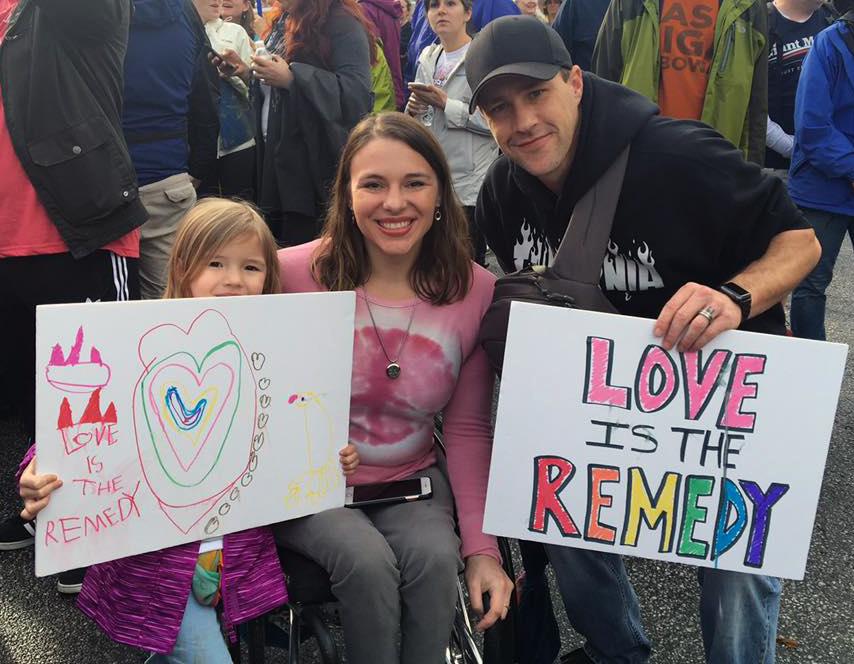
Kristina practices what she preaches by following these tips at home with her family.
You see sometimes, a specific type of food (or too much of something) can irritate our systems. If you’re serious about figuring out a solution, try going a week or more without gluten, dairy or sugar and see how much better you feel.
2. Reduce the Toxins
In the midst of all of our wonderful creations in the last couple hundred years, humans have also produced a world filled with toxins. Our food is made with artificial colors, preservatives and chemicals that can be harmful to our bodies and our environment. Harsh ingredients are found in everything from our shampoos and deodorants, to lotions and make-up, to cleaning supplies and air fresheners, to hand soaps, perfumes and dryer sheets – even in some types of catheters!!! We’re so surrounded by these things, that we forget that they’re even there.
Keep the Chemicals out of your catheters too!
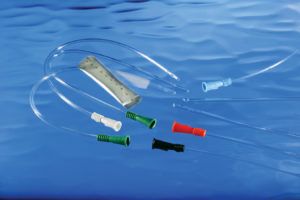 Did you know Cure Medical catheters are not made with scary chemicals like BPA, DEHP or natural rubber latex? Learn about the Known-carcinogen DEHP and how it affects your health here.
Did you know Cure Medical catheters are not made with scary chemicals like BPA, DEHP or natural rubber latex? Learn about the Known-carcinogen DEHP and how it affects your health here.
For example, essential oils are revered as one of nature’s greatest gifts and can be used to replace many (if not all) of the household products listed above (but not your catheter! Get ones without DEHP, BPA or Latex from Cure Medical).
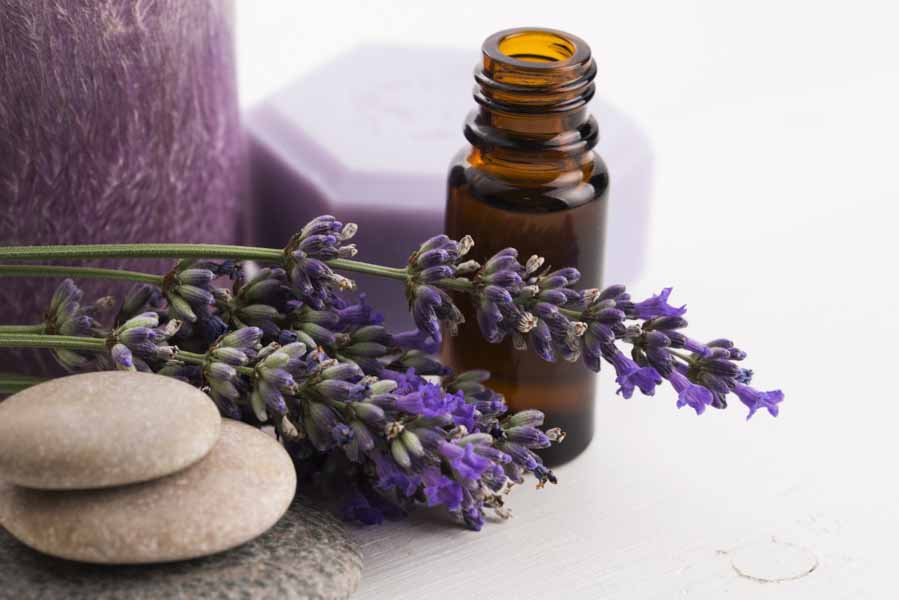
They’re a completely natural and aromatic option for home cleaning, personal care, and so much more. There are many companies making more and more natural products – so check out your local natural food store or organic section of your local market and start reading labels.
If you can’t pronounce an ingredient on a food label, grab your phone and look it up before you buy it!
3. Move Your Body
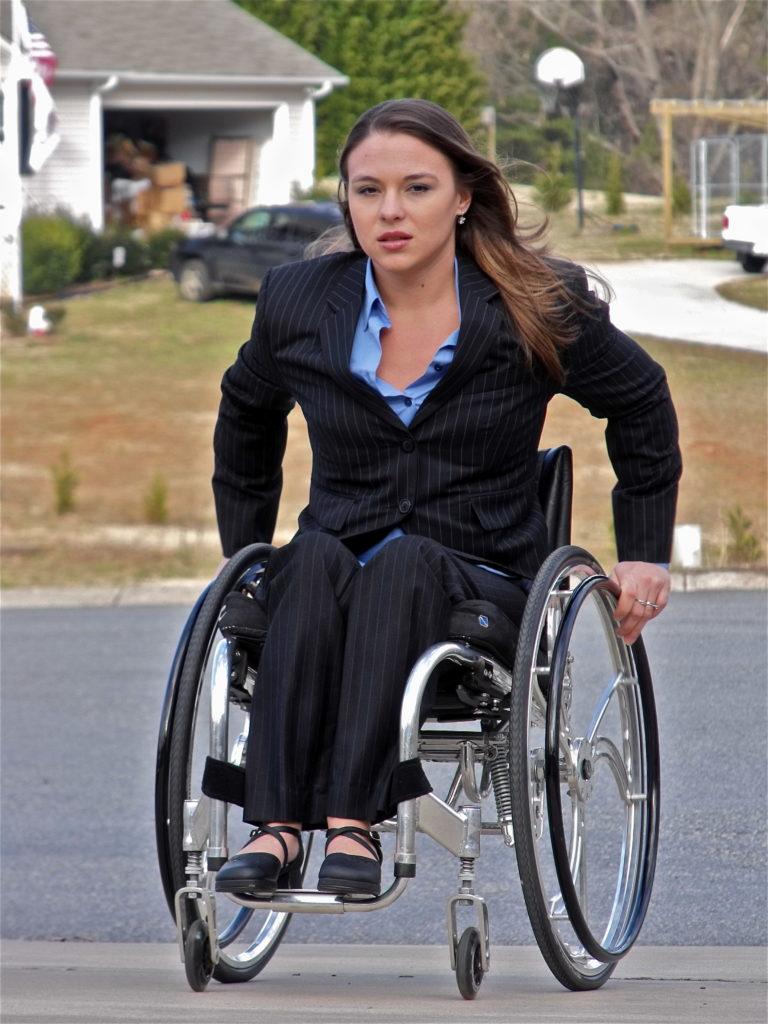
Even with a busy schedule of work travel and being a mom, Cure Advocate Kristina Rhoades finds time to squeeze in physical exercise – even if it’s just a short push.
Movement is key to a healthy body. And, with a physical disability, this one can take some critical thinking.
Whether you’re able to do it on your own, with exercise equipment or with a friend or trainer – you gotta move!
It’s crucial for the health of your bones, muscles, heart, circulation, respiratory system and so much more. Plus, when you build strength and muscle mass, it not only improves your independence and mobility, but it also increases how many calories you burn all the time – even when resting.
Take it at your own pace – just start somewhere.
If you need to, begin with baby steps. Do five minutes a day with some light weights or roll your chair down the block and back, if that’s as far as you can go. Make sure to get your heart rate up a little and shoot for a further distance or more reps next time.
Goals can be a great source of motivation, so think of something that you want to accomplish and aim for it. Maybe it’s participating in a 5K or a specific adaptive sport, or transferring into your bed unassisted, or kayaking in the Keys.
Just remember, it all begins with movement.

Think you can’t dance? Think again! Kristina rocks out at her favorite concerts all the time, and you can too.
4. Explore Alternative & Complementary Therapies
In addition to the traditional western medicine that we’re accustomed to, there are so many ancient practices and therapies that are available to us still. Acupuncture, massage, acupressure and yoga are examples of modalities that have been practiced and refined for thousands of years – and continue to help many people today.
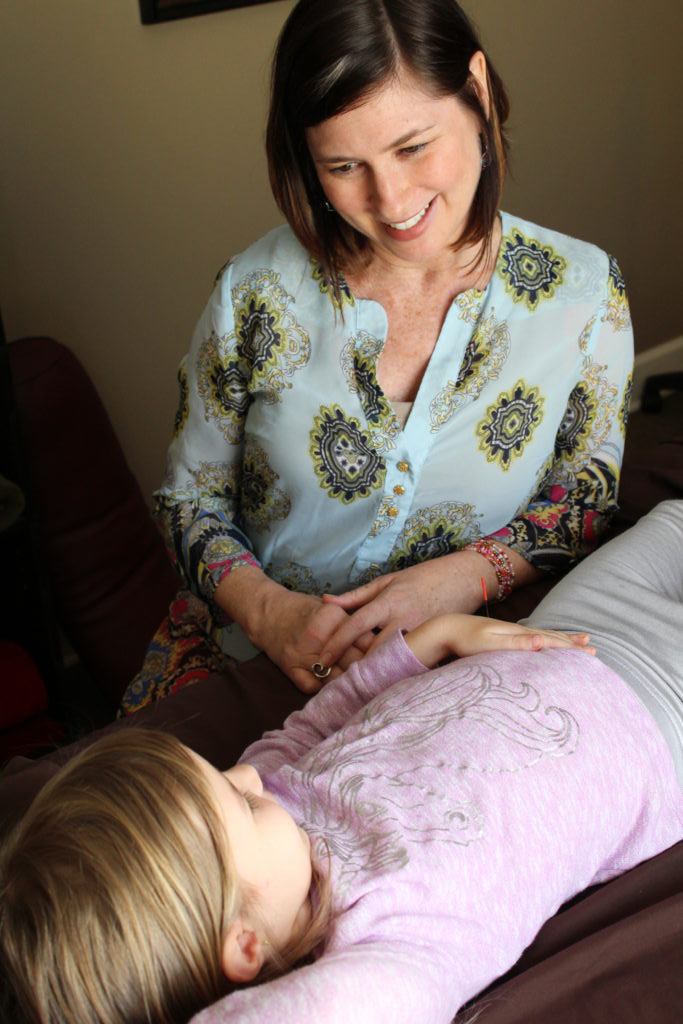
SCI patients have reported reduced spasms and pain after getting acupuncture – one of many complementary health options available today.
Often Chinese Medicine and other practices require a practitioner or expert, but there are other therapies that you can seek out in your local community that can be more self-lead and also positively impact your quality of life.
Water therapy (such as scuba diving), animal therapy (such as horseback riding), and other forms of nature therapy have been proven to be incredibly beneficial. Not only can they move your body in new ways, but they give participants a feeling of accomplishment and joy, which improves our entire body chemistry.
5. Calm Your Mind
The state of our minds and thoughts is often overlooked when we’re talking about our health.
Most of us have overactive minds, in which we’re constantly replaying our biggest fears, self-doubts, past regrets and future worries.
We often fail to be present in the moment and take control of our own thoughts. We let false beliefs that we picked up along the way define our perceptions and reality.
But just like anything else, with a little time and focus, our mind habits (thoughts, beliefs, reactions, etc.) can be evolved to better serve us and the life we’re creating.
Mindfulness is a great first step to getting control of our busy minds. Stopping to be completely aware of all that we’re experiencing in common moments, like taking a shower or driving to work or hugging our child, is where mindfulness starts.
It’s turning off “autopilot” to take the wheel of our life. It’s the understanding that stress and worry are actually harmful to our bodies and completely rob us of our present moments.
A healthier state of mind involves choosing gratitude and compassion more often, because it feels better.
It’s remembering to breathe and being kind to yourself. It’s shutting off the distractions and constant stimulation to just BE.
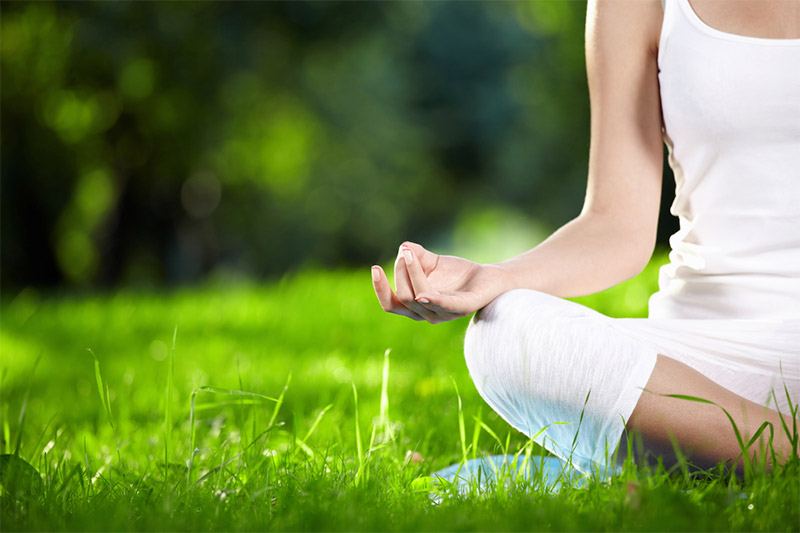 Need Help Calming Your Mind?
Need Help Calming Your Mind?
Try some simple mindfulness meditation. Put on some mellow music, focus on your breathing, incorporate some calming aromatherapy, and begin replacing negative thoughts with positive affirmations.
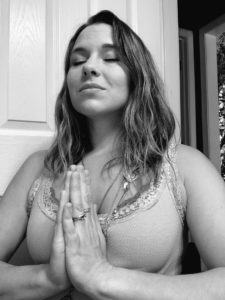 Cure Advocate Kristina Rhoades is a long-time wheelchair user with a spinal cord injury. She’s a life coach and meditator and is in the process of opening the first-ever accessible wellness retreat in New Mexico.
Cure Advocate Kristina Rhoades is a long-time wheelchair user with a spinal cord injury. She’s a life coach and meditator and is in the process of opening the first-ever accessible wellness retreat in New Mexico.
You can learn more at her wellness-centered Facebook Page or visit her website here.
Note: The information in this article should not be construed as medical advice. Please contact your physician for questions about your individual health.
Enjoy Our Free Resources & Articles
 CURE NATION is designed with you in mind, to offer assistance and education when you need it through a personal support program.
CURE NATION is designed with you in mind, to offer assistance and education when you need it through a personal support program.
All of the information you find below and on our related social media pages is meant to guide you to places, topics and, resources that enhance your life, while also connecting you with a growing group of friends.
- Sign up for our free, CURE NATION e-newsletter to have our latest stories delivered directly to you, once a month.
- Get our FREE LIFESTYLE + TRAVEL BOOKS here.
- Have an idea you’d like to share? Let us know.
- Be sure to take a minute to meet our Cure Advocates too.
You may also enjoy:
Cure Medical Introduces Cure Ultra® Coude Intermittent Catheter for Men
Enjoy Adapted Yoga in Las Vegas with Samantha Okumura
Accessible U.S. Travel Guide: Visiting Virginia on Wheels
Leading Disability Advocates Do Not Want Scary Chemicals in Intermittent Catheters
iFly All-Abilities Skydiving Program Takes People From Chair to Air
Arlene Long Shares Her Love of Community!
DeAnna Alexander Is Living Life With Purpose!
The 4 Stages of Acceptance: How Bob Yant Learned to Cope With His SCI

